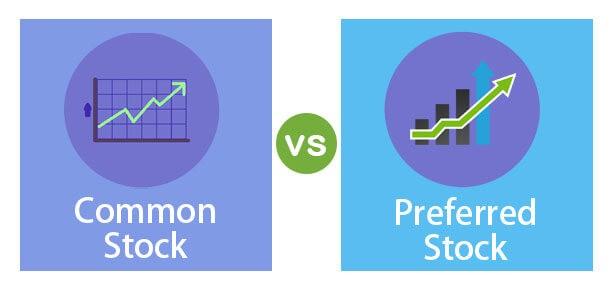How to Trade Stocks Online for Beginners
Apr 25, 2023 By Triston Martin
Are you interested in trading stocks online but need help knowing where to start? You're not alone! Trading stocks can be a powerful way to increase wealth and diversify investments. But it's important to understand the stock trading process before diving in. That's why we've prepared this guide - so that even beginners can confidently start navigating the stock market.
In this guide, we'll cover everything from getting set up with an online broker, understanding how pricing works, and creating a personalized strategy for investing. So if you're ready to trade stocks online like a pro, let's get started!
Understand the Basics of Stock Trading - Learn the different types of stocks and their meaning.

Stock trading can initially seem intimidating, but you'll be equipped to start investing with a basic understanding of stocks and how they are traded. Stocks represent investments in businesses or other organizations that come in common and preferred stock.
Common stock is typically the most popular form held by individual investors since it carries voting rights, giving shareholders a say in corporate decisions.
Preferred stock owners have no voting rights but receive higher dividends and priority if the company is liquidated. It's important to understand these differences before investing.
Stocks are also categorized by their industry, such as technology or retail companies, and can be further divided into large-cap (a market capitalization of more than $10 billion), mid-cap ($2 billion to $10 billion), and small-cap (less than $2 billion). Knowing the size of a company may help you determine its potential for growth and risk level.
Take the time to research stocks that may interest you, so you can feel confident about any trade you make. Learning about stocks will allow you to make informed decisions and create a strategy for investing that works best for you.
Choose an Online Brokerage Account - Compare different options and decide which best suits your needs.

When trading stocks online, choosing the right online brokerage account is essential. Different brokerages offer different features that can fit your individual needs and preferences.
To find the best online broker for you, review some of the top choices in the industry and compare their features side by side. Look at fees, payment methods offered, account types, customer support services, research tools, and educational resources available.
When selecting an online broker, consider other factors, such as reputation or ease of use. Once you decide on a few brokers that could be a good fit for you, look into each one more closely before making a final decision so that you know exactly what you are getting into with each option.
Doing your research upfront can save you time and money in the long run. By comparing different online brokers, you can make an informed decision that best suits your needs as a trader.
With the right broker on your side, trading stocks online can be a powerful way to increase wealth and diversify investments.
Open an Account and Fund it.
- The first step to trading stocks online is opening a brokerage account. Researching and comparing different brokerages is important to find one that best meets your needs. Most will require some form of registration process and allow for various funding methods so that you can deposit money into your new account.
- Once you create an account, the next step is to fund it with enough money to begin making trades. The amount of capital needed will vary based on the type of broker you choose and how much risk you're comfortable taking.
- Generally speaking, most brokers require at least a $500-1000 minimum deposit before they'll let you start trading.
- Finally, you can start trading stocks online after registering and funding your account. Before doing so, it’s critical to understand the basics of stock pricing, how to develop a trading strategy, and what risks you may be exposed to maximize your returns while minimizing losses. With that knowledge, you can confidently start navigating the stock market like a pro.
Research Companies You May Want to Invest In - Find reliable sources for stock market news, trends, financial reports, etc.
Researching companies you may want to invest in is essential to trading stocks online. Before buying any stock, it's important to know the financial position and outlook of the company. This will help you decide which stocks will likely be profitable investments.
The best way to get reliable information about potential stocks is to use trusted sources for stock market news and trends. You can find these sources through research websites, business magazines, and financial reports from investment firms. Additionally, many online brokers provide resources such as analyst ratings and earnings estimates that can help you evaluate potential investments.
Finally, remember to consider what other investors think of a certain stock before investing. Consider researching recent analyst recommendations, the stock’s performance over the past year, and any news that affects the company.
Place Your Trades - Log in to your account, fill out the order form, and click "Submit."
Trading stocks online is a powerful way to increase wealth and diversify investments, but it’s important to understand the process before diving in.
Once you have an account with an online broker and have chosen your stocks, the next step is to place your trades. Logging into your account is the first step. Then you'll need to fill out the order form, which includes identifying the stock you are trading, how many shares, and whether you are buying or selling
.
Finally, click “Submit” to complete your trade. It's as easy as that! Even beginners can become successful stock market traders with careful research and practice.
Monitor Your Investments - Keep up with current prices and trends so you know when it's time to buy or sell
Monitoring your investments is an essential part of trading stocks online. Keeping up with current prices and trends will enable you to make informed decisions about when to buy or sell. Staying informed on market movements will help you avoid costly mistakes and maximize profits.
It’s important to track the performance of your stocks over time so that you can spot any potential changes in price direction.
Finally, don’t forget to regularly review your existing investments and monitor your portfolio’s performance. This will help you identify discrepancies or potential losses to make informed decisions about when to buy or sell.
FAQs
How do I research stocks?
Researching stocks is an important part of the trading process. You'll want to consider fundamental and technical analysis when deciding what stocks to buy or sell.
What are the risks associated with trading stocks?
Trading stocks comes with inherent risk because there is no guarantee that you will profit from any trade. Understanding the risks associated with stock trading before investing your money is important. Trading can be volatile and involve large losses due to market fluctuations.
How do I exit a position?
You can exit a position by selling your stocks in the market or placing a limit order. A limit order sets a target price for you to close out the position, and when that target is reached, the trade will be executed automatically.
Conclusion
Trading stocks online can be a great way to start investing in the stock market but remember to research and keep your eye on the market trends. Educating yourself about the stock market will help you make smarter investments, so don’t be afraid to invest time in learning the basics. Investing in stocks is not a get-rich-quick scheme, so don’t forget that even though you could make money with stocks, you are also putting up money for it and may lose it.








